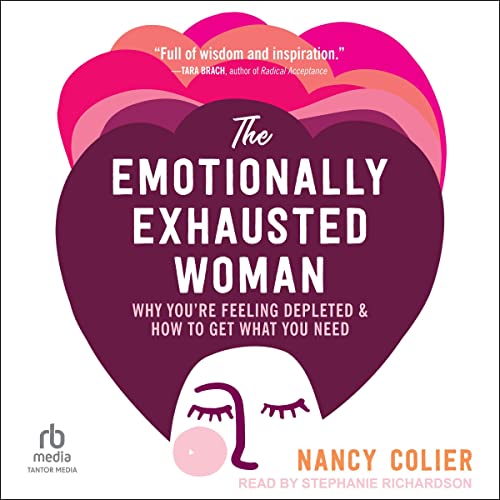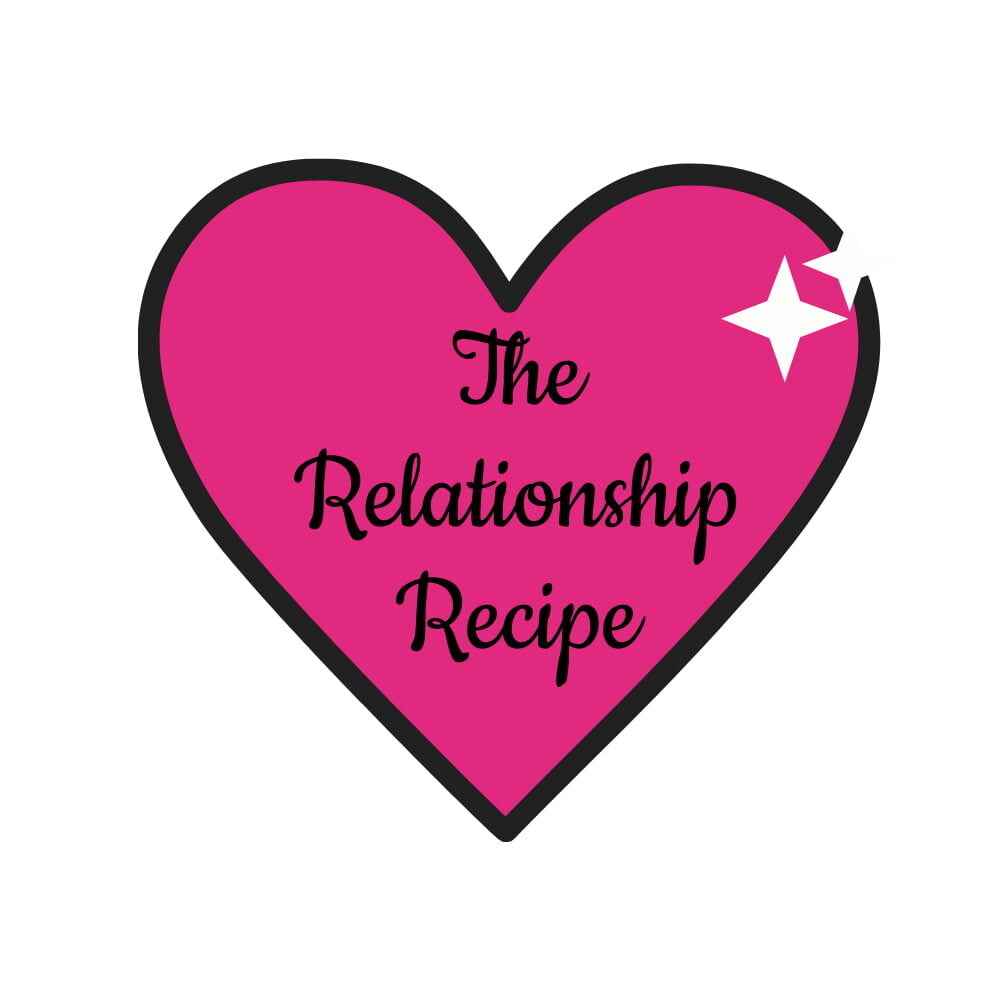Have you ever felt emotionally drained and exhausted, but brushed it off as just a part of life? Sometimes emotional exhaustion may be caused by a rocky, toxic relationship that has left you seething with resentment, a narcissistic child, or a stressful career. There is a book called “The Body Keeps the Score” that discusses the physical affects of of emotional exhaustion as well as other external factors.
What if I told you there are 7 critical indicators of emotional exhaustion that you should never ignore?
Let’s discuss how these signs can impact your well-being and what you can do to address them.

Emotional exhaustion is a prevalent and often overlooked aspect of our mental well-being. In the hustle and bustle of daily life, we might not realize the toll it takes on our emotional health until warning signs become too prominent to ignore.
This article discusses the top seven warning signs of emotional exhaustion that one shouldn’t dismiss. However, before diving into these signs, let’s explore the important aspects of recharging when emotionally exhausted, understanding the recovery process, and addressing the question of whether the body can shut down from exhaustion.
“Emotional exhaustion is not just a state of mind, it’s a critical indicator of deeper issues that should not be ignored.”
How Do You Recharge When Feeling Emotional Exhaustion?
Rejuvenating oneself when experiencing emotional exhaustion is pivotal for sustaining mental and emotional well-being. Diverse strategies can be embraced to replenish energy and fortitude:
- Embracing Self-Care: Participation in self-care rituals is paramount. This may entail activities that bring joy, relaxation, and a sense of fulfillment, such as reading, indulging in a leisurely bath, practicing mindfulness, or pursuing hobbies.
- Prioritizing Quality Sleep: Ensuring adequate and quality sleep is fundamental for emotional well-being. Establishing a consistent sleep schedule, crafting a conducive sleep environment, and abstaining from stimulants before bedtime can bolster sleep quality.
- Detaching from Stressors: Taking respite from stressors, particularly digital ones, is essential. Disconnecting from social media, work emails, and other stress-inducing sources grants the mind the opportunity to rest and recuperate.
- Nourishing the Body: Consumption of a balanced and nutrient-rich diet fosters physical and emotional health. Nutrient-dense foods not only bolster overall well-being but also positively influence mood and energy levels.
- Engaging in Physical Activity: Regular exercise has been associated with enhanced mood and reduced stress levels. Participating in activities like walking, jogging, or yoga can stimulate the release of endorphins and bolster emotional resilience.
- Seeking Emotional Support: Communicating with a trusted friend, family member, or mental health professional can offer invaluable emotional support. Sharing thoughts and experiences can alleviate the burden of emotional exhaustion.
- Establishing Boundaries: Setting clear boundaries in personal and professional spheres is indispensable. Recognizing when to decline commitments and prioritizing self-care aids in averting burnout and emotional depletion.

How Do You Recover from Emotional Exhaustion?
Recovering from emotional exhaustion is a process that involves intentional and sustained efforts. Here are some strategies for effective recovery:
1. Acknowledging Feelings: Recognizing and acknowledging one’s emotional state is the first step. It’s essential to validate and accept the feelings of exhaustion without judgment.
2. Reflecting on Triggers: Identifying the underlying causes or triggers of emotional exhaustion is crucial for effective recovery. Reflecting on situations or relationships that contribute to stress helps in devising strategies to address them.
3. Professional Help: Seeking assistance from mental health professionals, such as therapists or counselors, can provide valuable insights and coping mechanisms. Professional guidance can be instrumental in navigating complex emotions.
4. Taking Time Off: If possible, taking a break from work or other stressors can be beneficial. A temporary pause allows for much-needed rest and the opportunity to reassess priorities.
5. Engaging in Relaxation Techniques: Practices such as deep breathing, meditation, or progressive muscle relaxation can promote relaxation and alleviate emotional tension. Integrating these techniques into daily routines supports ongoing recovery.
6. Gradual Return to Responsibilities: When ready, gradually reintroducing responsibilities and commitments is advisable. Rushing back into a demanding routine may hinder recovery, so a phased approach is essential.
7. Building a Support System: Cultivating a robust support system is vital for long-term emotional well-being. Establishing connections with friends, family, or support groups ensures ongoing encouragement and understanding.

How Does Your Body Shut Down from Exhaustion?
Although “shutting down” is often used metaphorically, extreme emotional exhaustion can genuinely result in both physical and mental health challenges. Extended emotional fatigue may exacerbate conditions like burnout, depression, or anxiety disorders. Continual activation of the body’s stress response can lead to disturbances across various physiological systems.
Chronic stress and exhaustion may impact the:
1. Immune System: Prolonged stress weakens the immune system, making individuals more susceptible to illnesses.
2. Cardiovascular System: Stress can contribute to high blood pressure and increase the risk of cardiovascular diseases.
3. Digestive System: Chronic stress may lead to digestive issues, including irritable bowel syndrome (IBS) and other gastrointestinal problems.
4. Endocrine System: Persistent stress affects the endocrine system, disrupting hormonal balance and potentially leading to conditions such as adrenal fatigue.
5. Mental Health: Emotional exhaustion is closely linked to mental health issues. Severe cases may contribute to conditions like major depressive disorder or anxiety disorders.
It’s important to note that people vary in their response to stress, and while some may experience physical symptoms, others may primarily manifest emotional distress. Seeking professional help when experiencing severe emotional exhaustion is important to prevent potential long-term health consequences.

Top 7 Warning Signs of Emotional Exhaustion
In the fast-paced and demanding landscape of contemporary life, the toll on our mental and emotional well-being often goes unnoticed until warning signs become too glaring to dismiss.
Emotional exhaustion, a pervasive and often overlooked aspect of mental health, can significantly impact our ability to function optimally. In this article, we will delve into the top seven warning signs of emotional exhaustion that should never be ignored, shedding light on this silent strain and offering insights on how to navigate its challenges.
1. Persistent Fatigue and Lack of Energy:
One of the earliest indicators of emotional exhaustion is a persistent and overwhelming fatigue that transcends physical tiredness. Despite adequate rest, individuals may find themselves constantly drained, lacking the energy needed to engage in daily activities. This fatigue goes beyond the physical realm and seeps into the emotional and mental dimensions, making even simple tasks feel daunting.
2. Decreased Motivation and Productivity:
Emotional exhaustion often leads to a noticeable decline in motivation and productivity. Tasks that once felt manageable become overwhelming, and individuals may struggle to find the drive to complete them. Procrastination and a pervasive sense of apathy set in, hindering both personal and professional accomplishments.
3. Increased Irritability and Impatience:
A heightened irritability and decreased tolerance for stress are common warning signs of emotional exhaustion. Small inconveniences or challenges that would typically be manageable may evoke strong emotional reactions. Individuals may find themselves easily agitated, impatient, and prone to emotional outbursts, straining relationships both at home and in the workplace.

4. Difficulty Concentrating and Memory Issues:
Emotional exhaustion has a profound impact on cognitive functions, leading to difficulties in concentration and memory. Individuals may struggle to focus on tasks, experiencing a mental fog that interferes with their ability to absorb and retain information. Forgetfulness becomes more prevalent, adding to the overall sense of mental fatigue.
5. Emotional Detachment and Cynicism:
A noticeable emotional detachment and a growing sense of cynicism towards work, relationships, or life, in general, are key indicators of emotional exhaustion. Individuals may find it challenging to connect emotionally with others, withdrawing from social interactions. The once vibrant and optimistic outlook on life is replaced by a more cynical and detached perspective.
6. Sleep Disturbances and Insomnia:
The interplay between emotional exhaustion and sleep is intricate. While fatigue is a common symptom, emotional distress can also manifest as sleep disturbances and insomnia. Racing thoughts, worry, and a heightened state of arousal make it difficult for individuals to unwind, leading to disrupted sleep patterns and, subsequently, exacerbating emotional exhaustion.
7. Physical Symptoms and Increased Illness:
Emotional exhaustion doesn’t solely impact the mind; it takes a toll on the body as well. Individuals experiencing emotional exhaustion often report an increase in physical symptoms such as headaches, muscle tension, gastrointestinal issues, and a weakened immune system. The chronic stress associated with emotional exhaustion contributes to these physical manifestations, underscoring the mind-body connection.

The Wrap-Up
Identifying the indicators of emotional exhaustion serves as a crucial initial stride in safeguarding mental health and overall well-being. These signals, when disregarded, may escalate into graver outcomes such as burnout, anxiety disorders, or depression. It is imperative to approach emotional exhaustion with compassion, both towards oneself and others, while adopting tactics that foster resilience and restoration.
Comprehending methods for replenishment, recuperation, and acknowledging the potential bodily ramifications of emotional exhaustion stands pivotal in upholding holistic wellness. Through recognizing the telltale signs and applying practical strategies, individuals can navigate emotional exhaustion more adeptly, bolstering resilience in the face of life’s adversities.

Before You Go…
If emotional exhaustion has you feeling depleted, I suggest this book written exclusively for this issue.
If you resonate with the experiences of many women today, you might find yourself grappling with overwhelming emotions, exhaustion, anxiety, stress, frustration, or a sense of dissatisfaction. It’s possible that you’ve been shouldering a significant amount of emotional labor, prioritizing others’ needs over your own well-being. If you’ve spent years trying to please and manage the experiences of those around you, it’s time to voice your truth, step into your own identity, and embrace an authentic life, rather than merely conforming.
In “The Emotionally Exhausted Woman,” therapist and spiritual teacher Nancy Colier offers the understanding, support, and practical skills you’ve been seeking. Through her guidance, you’ll uncover insights rooted in self-respect and mindfulness, empowering you to advocate for yourself and identify your deepest psychological, spiritual, and emotional needs without guilt, shame, or judgment. You’ll explore the reasons behind your depletion, the tendency to prioritize others over yourself, and how to cultivate a more profound level of self-care that goes beyond temporary indulgences like a spa day or manicure. Ultimately, you’ll cultivate a heightened awareness of your own needs and find the courage to lead a life that nourishes and inspires you.
This transformative resource will equip you with the tools to recognize and honor your own needs, empowering you to live a life that fosters both personal growth and fulfillment.

This post may contain affiliate links. I earn from qualifying Amazon purchases at no extra cost to you.




